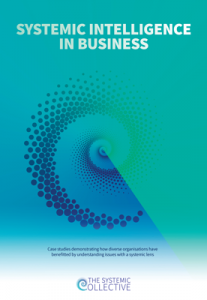It’s easy to spot a healthy system – people are flourishing, ideas are generated freely and there’s effective problem solving with minimum interruption. Symptoms of an unhealthy system include resistance, opposition, compulsive patterns, entitlement, overdrive, persistent conflict, oversimplification and overcomplication.
Organisations have intrinsic cultural and operational dynamics that can either support or stifle the business. ‘System Dynamics’ refers to the movements arising from interactions between inter-connected elements that, thereby, form a ‘system’. Understanding the most influential dynamics in a complex system is important for executives and crucial for the leadership of a successful organisation. It can give you the insights, perspectives and understanding to expose the truth of the system, remove the secrets, perceptual filters and distortions.
The challenge in identifying ‘system dynamics’ is that they are subtle and often not recognised at a conscious level. The ‘unconscious’ nature of system dynamics means that they are often more powerful than formally adopted mission or vision statements, permeating the very fabric of the business and impacting decisions and actions, outside of our awareness.
Systemic Intelligence allows leaders to see their current reality, exposing them to all points of views. Once seen, the rest of the system starts communicating. Then the leaders can explore different relationships to find flow, health and vitality. By making everything in the system observable from an objective point of view and expanding your perspective, you are able to see what requires attention and where to take action.
The Banking Royal Commission as an example
As I observed the revelations of the Banking Royal Commission, and other crises that engulf organisations, it strikes me that what’s so clear from the outside, seems to be so indistinct on the inside. While the complex issues that lie at the heart of organisational failures aren’t easy to resolve for anyone who’s in the system, I know that systemic work is a potent resource to address many of these conundrums.
When it comes to the failures that have been revealed through the Royal Commission, with the systemic lens I would be curious what has its roots in the past, what lies with consumers, what come from the interaction with other systems with which they are interdependent, such as other regulators, governments, superannuation, governance, advisors, and international financial markets. No-one is immune from a role in this. And while this is just one sector across our society, it’s a perfect example of the complexity that organisations everywhere are grappling with.









